Performance Exam

What kind of food and drinks should I consume to enhance my performance during exams ?
Proper nutrition is vital for exam performance, helping to maintain focus and energy. Recommended brain-boosting foods include lean proteins, complex carbohydrates, healthy fats, and antioxidant-rich items. Hydration is also key, with a suggestion to avoid sugary drinks and excessive caffeine. Meal ideas provide balanced options for breakfast, lunch, snacks, and dinner, emphasizing the importance of consistent healthy eating habits in the lead-up to exams.

What role does preparation play in managing exam-related stress ?
Exam-related stress is a common experience for many students, and it can have a significant impact on their performance. However, preparation is one of the most effective ways to manage this stress. In this article, we will explore the role that preparation plays in managing exam-related stress. Preparation is crucial when it comes to managing exam-related stress. It reduces anxiety, increases efficiency, improves performance, and builds resilience. To prepare for exams, start early, create a study plan, review notes and textbooks, practice with past papers, seek help if needed, take care of yourself, stay positive, visualize success, avoid procrastination, and use relaxation techniques. By following these strategies, you can prepare yourself effectively for exams and manage any related stress. Remember, preparation is key to success!

Is it normal to experience anxiety before an exam ?
Is it normal to experience anxiety before an exam? Yes, it is absolutely normal to experience anxiety before an exam. In fact, it's a common reaction that many students face. This feeling of unease or nervousness is often referred to as "test anxiety" or "exam stress." Let's delve into this topic further: Understanding Exam Anxiety Exam anxiety can manifest in various ways, such as physical symptoms like sweating, trembling hands, or a racing heartbeat. Mental symptoms like difficulty concentrating or thinking negatively about the exam are also common. Emotional symptoms like feeling overwhelmed or fearful may also occur. Why Does It Happen? Several factors can contribute to exam anxiety, including performance pressure, lack of preparation, past experiences, and perfectionism. Coping with Exam Anxiety There are several strategies to manage exam anxiety effectively, such as adequate preparation, relaxation techniques, positive self-talk, time management, and maintaining a healthy lifestyle. Seeking Support If your anxiety is severe or persistent, consider seeking support from tutoring, study groups, or professional help. Final Thoughts Remember, it's okay to feel anxious before an exam. Acknowledge your feelings without judgment and utilize the strategies mentioned above to manage your anxiety. With preparation and the right mindset, you can approach your exams with confidence and competence.

What role does sleep play in exam preparation ?
The text discusses the crucial role of sleep in exam preparation, emphasizing its impact on cognitive functioning, memory consolidation, and emotional regulation. It outlines various benefits of adequate sleep, such as improved concentration, decision-making skills, learning capacity, and memory retention. Additionally, it highlights the importance of reducing anxiety, increasing motivation, and improving mood during the exam preparation process. The text also provides tips for achieving optimal sleep, including establishing a consistent sleep schedule, creating a comfortable sleep environment, limiting caffeine and nicotine intake, relaxing before bedtime, avoiding heavy meals late at night, limiting daytime naps, exercising regularly, and managing stress levels. Overall, the text underscores the significance of prioritizing sleep as an essential component of exam preparation for enhanced performance and well-being.
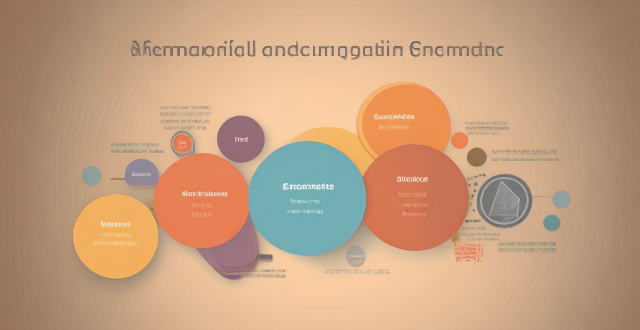
What advice would a psychologist give for someone with severe exam anxiety ?
Exam anxiety is a common issue that can impact performance. A psychologist offers advice on recognizing symptoms, identifying triggers, coping strategies (time management, study techniques, relaxation techniques, positive self-talk, seeking support), preparing for the exam day (sleep, healthy meal, arriving early), during the exam (reading instructions carefully, staying calm and confident, managing time wisely), and after the exam (reflecting on performance, taking care of yourself). By understanding exam anxiety and adopting effective strategies, individuals can overcome their fears and perform to the best of their abilities.
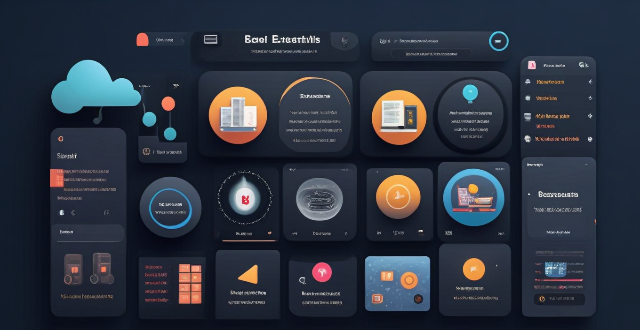
Are there any specific apps designed to aid in exam preparation ?
There are numerous apps designed to aid in exam preparation, offering features such as digital flashcards, video lessons, study tools, countdown timers, and productivity enhancements. By utilizing these apps, students can study effectively and increase their chances of success on exams.

How do I overcome the fear of failing an exam ?
Overcoming the fear of failing an exam involves preparation, positive thinking, effective time management, seeking support, and self-care. Preparation includes creating a study plan, breaking down material, and practicing with past papers. Staying positive involves visualizing success, using affirmations, and celebrating small victories. Managing time effectively means creating a schedule, prioritizing tasks, and avoiding procrastination. Seeking support can come from friends, family, or teachers. Taking care of oneself involves getting enough sleep, eating healthy, and exercising regularly. By following these strategies, one can conquer the fear of failing an exam and achieve academic success.

How does meditation help in reducing exam stress ?
Meditation is a practice that has been used for centuries to promote relaxation, reduce stress, and improve overall well-being. When it comes to exam stress, meditation can be a powerful tool in helping students manage their anxiety and perform better. In this response, we will explore how meditation helps in reducing exam stress. The benefits of meditation include calming the mind, improving concentration, reducing physical symptoms of stress, and promoting better sleep. Regular meditation practice has been shown to improve concentration and attention span, which is particularly beneficial for students who need to focus on studying and retaining information for exams. By improving their ability to concentrate, they can study more efficiently and effectively. Meditation has also been found to reduce physical symptoms of stress such as headaches, muscle tension, and fatigue. By reducing these symptoms, students can feel more relaxed and better prepared for their exams. Additionally, meditation has been shown to promote better sleep by reducing stress levels and promoting relaxation. By getting enough restful sleep, students can wake up feeling refreshed and ready to tackle their exams. To practice meditation for exam stress reduction, find a quiet space where you won't be disturbed or distracted. Set a time limit for your meditation session and start with shorter sessions (5-10 minutes) before gradually increasing the duration. Focus on your breath and use guided meditation recordings or apps if you're new to meditation or struggling to focus. Practice regularly to experience the full benefits of meditation. In conclusion, meditation is a valuable tool for reducing exam stress and improving overall well-being. By calming the mind, improving concentration, reducing physical symptoms of stress, and promoting better sleep, meditation can help students feel more prepared and confident when facing their exams. Incorporating regular meditation practice into their routine can help students reap the benefits and approach their exams with a sense of calm and clarity.

Can eating habits affect my level of stress before an exam ?
Eating habits can significantly affect your level of stress before an exam. Proper nutrition is crucial for maintaining physical and mental well-being, which impacts your ability to handle stress and perform well during exams. Here are some ways in which eating habits can influence your stress levels: 1. **Blood Sugar Regulation**: Eating balanced meals and snacks throughout the day helps maintain stable blood sugar levels, avoiding mood swings and irritability that can increase stress. 2. **Brain Function**: Your brain requires essential nutrients to function properly. Foods rich in vitamins, minerals, and antioxidants support cognitive function and improve focus, memory, and concentration. 3. **Gut-Brain Connection**: There is a strong connection between your gut health and your mental state. Eating probiotic-rich foods promotes a healthy gut microbiome associated with better mood and reduced stress. 4. **Hydration**: Staying hydrated is essential for overall well-being and can impact your stress levels. Dehydration can lead to headaches, fatigue, and difficulty concentrating, adding to pre-exam stress. 5. **Caffeine Intake**: Moderate amounts of caffeine can provide a temporary boost in alertness, but excessive consumption can increase anxiety and interfere with sleep quality, important for stress management and cognitive performance. 6. **Comfort Eating**: Some people turn to food as a coping mechanism when stressed or anxious, leading to overeating or unhealthy choices that may provide short-term relief but ultimately exacerbate stress due to feelings of guilt or discomfort. By prioritizing nutrient-dense foods, staying hydrated, and avoiding excessive caffeine and comfort eating, you can support your body and mind in managing stress more effectively before an exam.
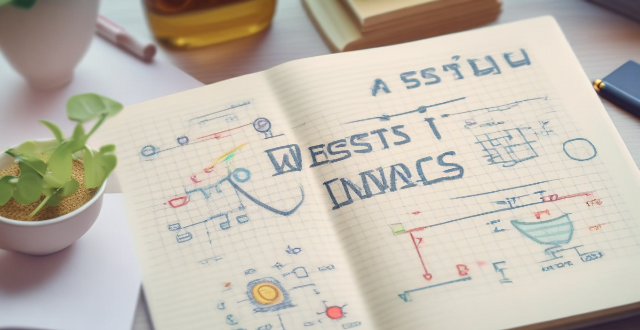
What is the best way to review and revise my notes before an exam ?
The best way to review and revise notes before an exam involves organizing your notes, using active learning techniques such as self-testing and teaching others, employing spaced repetition for better retention, mixing up study methods, maintaining good health through sleep and nutrition, and conducting a final review closer to the exam date. Consistent and continuous study habits are crucial for success.

What are some effective methods for reviewing and retaining information before an exam ?
Preparing for an exam can be a daunting task, but with the right strategies and techniques, it is possible to effectively review and retain information before the exam. Some effective methods for reviewing and retaining information before an exam include creating a study plan, using active learning techniques, practicing retrieval and recall, and staying motivated and avoiding procrastination. By following these methods, students can improve their chances of success on their exams.

How often should a woman have a well-woman exam ?
A well-woman exam is crucial for maintaining good health and preventing diseases. Regular exams can detect abnormalities, early signs of cancer, and monitor reproductive health. The frequency of these exams depends on age, medical history, and risk factors. Women under 30 should have a Pap smear every three years, while those between 30 and 65 should have a combination of Pap smear and HPV test every five years. Women over 65 may consider stopping routine Pap smears after discussing with a healthcare provider. In addition to regular well-woman exams, women should also perform breast self-exams, get mammograms, and get tested for STIs regularly. By following these guidelines, women can ensure that they stay healthy and catch any potential issues early on.
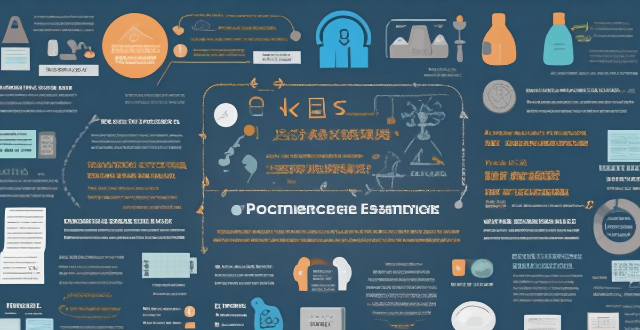
What are some helpful strategies for studying for exams ?
The article provides a comprehensive guide to effective exam preparation, emphasizing the importance of creating a structured study plan, finding an optimal study environment, using active learning techniques, practicing with past exam papers, taking regular breaks, staying organized, seeking help when needed, and maintaining a healthy lifestyle. These strategies aim to enhance focus, memory retention, and overall performance in exams.

How can I reduce stress and anxiety before and during exams ?
Exams can be a stressful time for many students, but there are several strategies you can use to reduce stress and anxiety before and during exams. These include early and regular study, creating a study plan, practicing old exams, getting enough sleep, eating healthy, staying positive, avoiding negative thoughts, visualizing success, using relaxation techniques such as deep breathing and meditation, exercising regularly, reading instructions carefully, starting with easy questions, managing your time, and staying calm during the exam.

What strategies should I use to manage my time during exams ?
Managing time effectively during exams is crucial for success. Here are strategies to help you prepare, allocate time wisely, prioritize questions, maintain a steady pace, review your work, manage stress, and stay healthy: 1. **Preparation**: Understand the exam format, practice with past papers, and study in advance to reduce last-minute stress. 2. **Time Allocation**: Allocate time according to the marks of each question, read instructions carefully, and be realistic about the time spent on each question. 3. **Prioritization**: Answer easy questions first to build confidence and mark difficult ones for review later. 4. **Pacing**: Keep an eye on the clock and maintain a comfortable pace to ensure all questions are answered thoroughly. 5. **Review and Adjustment**: Leave time at the end to review answers and check for errors. 6. **Stress Management**: Stay calm using deep breaths and relaxation techniques to manage stress during the exam. 7. **Health and Hydration**: Stay hydrated and eat lightly to maintain energy levels. By following these strategies, you can maximize your efficiency and performance during exams.
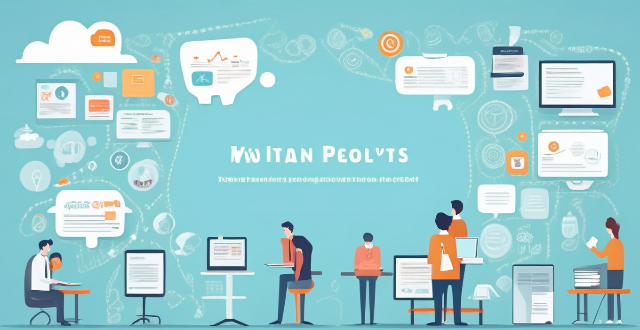
Is group study beneficial for exam preparation ?
Group study offers benefits for exam preparation, including knowledge sharing, motivation, improved comprehension, social skills development, stress relief, and better time management. Its success depends on factors like group dynamics and commitment levels.

How do I identify my weak areas and improve them before the exam ?
The text provides a comprehensive guide on identifying weak areas before an exam. It suggests analyzing past performances, assessing knowledge levels, seeking feedback, identifying learning styles, managing time effectively, practicing and repeating concepts, seeking additional help, and maintaining healthy lifestyle habits. The steps are designed to help students pinpoint their weaknesses and take targeted actions to improve them, emphasizing the importance of consistent effort and a positive mindset for success.

What are some strategies to cope with exam stress ?
The text provides strategies for coping with exam stress, which include time management, adopting healthy lifestyle habits, using effective study techniques, maintaining a positive mindset and attitude, and employing test-taking strategies. Time management involves planning ahead, prioritizing tasks, and avoiding procrastination. Healthy lifestyle habits include regular exercise, a balanced diet, and adequate sleep. Effective study techniques involve active learning, reviewing material regularly, and forming study groups. Maintaining a positive mindset and attitude involves positive thinking, setting realistic expectations, and practicing self-care. Test-taking strategies include reading instructions carefully, managing time wisely, and staying calm under pressure. By implementing these strategies, one can effectively cope with exam stress and perform to the best of their abilities.
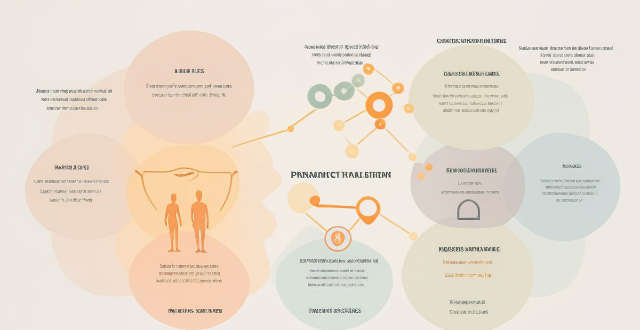
Are there any proven methods to avoid panic attacks during exams ?
The article provides a comprehensive guide on how to avoid panic attacks during exams, emphasizing the importance of preparation, healthy lifestyle habits, and coping strategies. It outlines the symptoms of panic attacks and suggests methods such as deep breathing, positive self-talk, mindfulness, and distraction to manage anxiety during exams. The article also encourages reflection post-exam and self-care activities to mitigate future panic episodes.

How can I manage test anxiety effectively ?
Test anxiety is a common issue among students that can be managed effectively through various strategies. Recognizing symptoms, practicing mindfulness, seeking support, preparing early, and staying healthy are some ways to combat test anxiety. Additionally, visualizing success, using relaxation techniques, setting realistic goals, staying organized, pacing oneself, and focusing on one question at a time can help improve performance. After the test, review mistakes without judgment, reflect on performance, and celebrate efforts regardless of the outcome.

What impact does female leadership have on organizational culture and performance ?
The impact of female leadership on organizational culture and performance is significant. Women leaders prioritize collaboration, diversity, emotional intelligence, innovation, financial performance, and customer satisfaction, leading to a positive work environment and business success.

What role does mental preparation play in improving running performance ?
Mental preparation is key to improving running performance. It involves setting clear goals, using visualization techniques, practicing mindfulness exercises, and employing self-talk strategies. By training the mind to focus on the task at hand, manage stress, and maintain motivation, runners can enhance their physical performance and achieve their running goals.
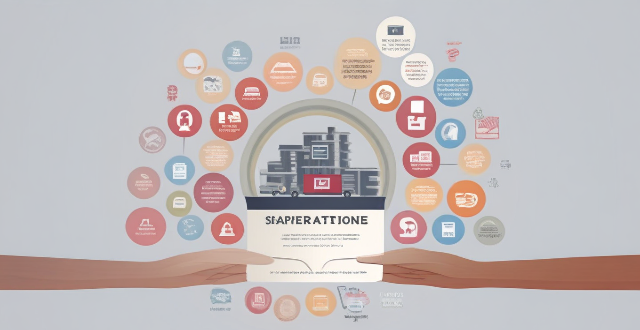
How does network expansion affect the overall network performance ?
Network expansion can significantly impact overall performance, offering benefits such as increased bandwidth, improved redundancy, and enhanced connectivity. However, challenges like compatibility issues, security concerns, and complexity management must be addressed to maintain optimal performance. Careful planning is crucial for successful network expansion.

Can napping improve athletic performance ?
**Can Napping Improve Athletic Performance?** Napping is a common practice among athletes and non-athletes alike, but can it really improve athletic performance? Research suggests that napping can aid in physical recovery and enhance cognitive function. Physical Recovery: - **Muscle Repair**: Sleep produces growth hormone, aiding in muscle repair and growth. - **Reduced Inflammation**: Sleep reduces inflammation, leading to better recovery after exercise. Cognitive Function: - **Improved Focus**: A quick nap can improve focus and concentration for peak performance. - **Enhanced Learning**: Sleep consolidates memories, allowing athletes to learn from mistakes and improve skills faster. Effective Napping Tips: Timing: - **Power Naps**: Limit naps to 20-30 minutes to avoid deep sleep and feeling groggy upon waking. - **Timing Before Bedtime**: Avoid napping too close to bedtime to prevent disrupting the nighttime sleep cycle. Environment: - **Quiet and Dark**: Find a quiet, dark place to nap for better sleep quality. - **Comfortable Surface**: Choose a comfortable surface to prevent waking up with aches and pains. In conclusion, napping can improve athletic performance by aiding physical recovery and enhancing cognitive function. It's important to nap effectively by timing your naps appropriately and creating a comfortable environment.

How does music affect athletic performance ?
Text is about how music can affect athletic performance. It explains the ways in which listening to music while exercising or competing can increase motivation, improve focus, reduce the perception of effort, and distract from pain and fatigue, leading to better performance and results.
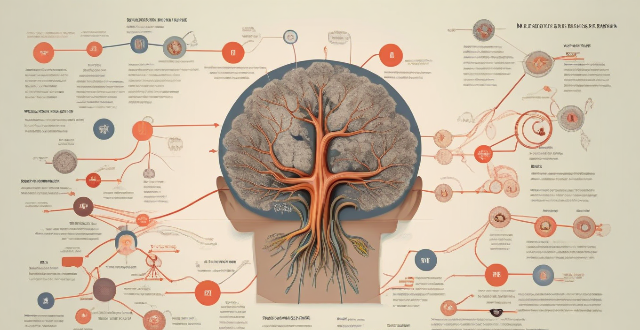
How can I distinguish between normal nervousness and excessive test anxiety ?
Normal nervousness is a natural response to stress, while excessive test anxiety can have negative effects on performance and well-being. Signs of excess test anxiety include excessive worry, avoidance behavior, physical symptoms, negative self-talk, and behavioral changes. Seeking help from a trusted source can provide guidance and support to manage anxiety and improve performance.

Can wearable technology improve athletic performance ?
The text discusses the potential benefits of wearable technology for athletes. Wearable devices can provide real-time feedback, goal setting and tracking, motivation, injury prevention, and data analysis to improve athletic performance. However, they should not replace traditional training methods or professional coaching. Athletes should use them as a tool to complement their existing training program and consult with experts when making decisions about their training and performance goals.